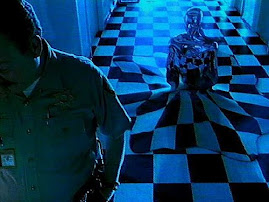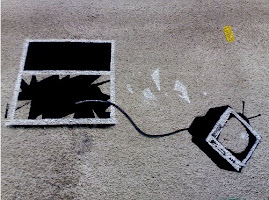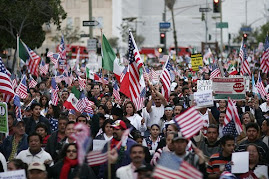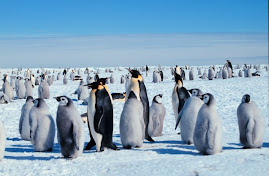Instead of an expected proliferation of the egalitarianism symbolized by the communes of hippie society -- one that would eventually overshadow the entirety of government, economics and the social order, the world tipped in the other direction. Like in the unexpected falling of a great tree revolving for the final collapse toward rather than away from the woodsman. America first, and eventually the whole earth, was to wobble sharply on its axis and jarringly spin, out of control into an Alice in Wonderland wormhole in space-time, emerging to find itself in a political semblance of Flat Land. An unreal Capitalist Utopia emerging, not from the vision of an affluent but egalitarian society as envisioned by mainstream economists of the time like John Kenneth Galbraith, but rather by some inept cartoon caricature, some ghoulish merger of William Buckley and Milton Friedman. Like a bad trip through the Star Trek transporter, where America found itself to have been morphed into a half-human, half-fly organism, and mounted on some microscope slide to experience the inspection -- and final judgment -- of the entire world.
That judgment was harsh. The world had already itself been infected with the virus of Americanism. And amid this raging contagion other nations were more than ready for a dose of the elixir of Anti-Americanism. Because the world, you see, had grown more than a little alarmed over the epidemic proportions of that infestation. In no way had it gone unnoticed that by the end of the second World War America’s gross domestic product dwarfed that of any other nation. And that the United State’s clear intention was to keep it that way. It’s appetite was insatiable. Both for the consumption of the earth’s shared resources and for the imperial dispersal of its own culture to other parts of the world, even at the expense of exterminating the cultural heritages of entire peoples. There were few actual challenges to it’s ascendancy, even in times before it was the only remaining super power of the world. China had too many problems of its own to be a real threat, although it served as a convenient theatrical prop. It, along with the Soviet Union, made good fuel for the peace-time propaganda machine as the illusory “communist threat” that was used to justify everything from the massive (and profitable) arms build up to the Chicago School’s invasion and economic subjugation of Latin America’s Southern Cone countries. All of this was done to save the world from “godless communism” and to promote “truth, justice and the American way”. And it all served, in the tradition of Edward Bernays, to keep the American people mindlessly grinning from both ear to ear and sea to shining sea. No one stopped to consider that the United States unlike the majority of the world’s nations enjoys its own shell of protection in the form of two vast oceans on either side, making any sudden invasion by other nations highly improbable. And, of course, America's clear military and nuclear superiority and the doctrine of mutual assured destruction, then taken seriously by all nations (since mad men had not yet been financed into positions of nuclear capability by American political schemers) still proved an effective check to the imperial ambitions of all other nations.
So, by the time the Bush presidency, which had run on the promise that there would be no “nation building” was up and running, the world was already holding its gut in pain from an overindulgence of a sixty year junk food diet of “American pie.” “The Ugly American” of William Lederer's and Eugene Burdick’s day had transformed itself into an all devouring consumer machine that threatened not only to assimilate other cultures, but to unseat the stability of nature itself by sucking the earth dry of it’s resources of oil, water, breathable air, sustainable agriculture and alternative fossil fuels, not in some distant future, but within a few generations. It was not only threatening the economic stability of poorer nations with it’s policies of unregulated investor driven capitalism. It was threatening the future of the human species itself in a very real and visible manner.
The realization that the earth is no cornucopian horn of plenty to be endlessly expolited for private profit has dawned on some of the world’s countries. They have come to regard it for what it is: an interdependent system of biological and geophysical mechanisms. One whose balance and continuation depend on responsible consumption and replentishment deriving from the goal of long term sustainability rather than short term exploitation for profit. They have begun to take small, but necessary steps toward restoring balance to our ecosystem. There is no assurance that they are acting in time to succeed. But they are beginning. The astonishing thing, though, is that among nations, America, in particular, is so begrudging of making the sacrifice called for so as to ensure that humanity itself will endure. It continues to put the short term personal satisfactions of consumerism ahead of the good of the entire species. It continues to use the power of media and political persuasion to convince it’s citizens of the rightness of ever increasing consumption of limited resources, literally to fuel the engine of economic growth. As if every predetermined disposable product conceivable were absolutely necessary to the personal fulfillment of every American’s individual destiny. As if there were no logical alternative to the automobile for mass transit. As if the transportation of vegetables, meat, poultry, fish and bottled water thousands of miles to their end consumer were somehow reasonable and necessary alternatives to the use of locally grown and acquired supplies. As if the resource intensive, and industrially encouraged, production of meat based diets were really a healthy alternative to vegetarianism. Even measures as small as a return to the 55 mile per hour speed limit which would ensure the savings of millions of gallons a day in gasoline consumption were enough to enrage the populace against the governor of New Jersey, the only state to call for it during the most recent bout of high oil and gas prices. Americans will pay any price, suffer any hardship and sacrafice even the lives of future generations to ensure the continuation of it’s culture of creature comfort. And yet, America continues to wonder why the world hates it.

Why the Rest of the World Still Hates America by jimmi malarky is licensed under a Creative Commons Attribution-No Derivative Works 3.0 United States License.
Based on a work at malarkyspond.blogspot.com.
Permissions beyond the scope of this license may be available at http://malarkyspond.blogspot.com/.




















No comments:
Post a Comment